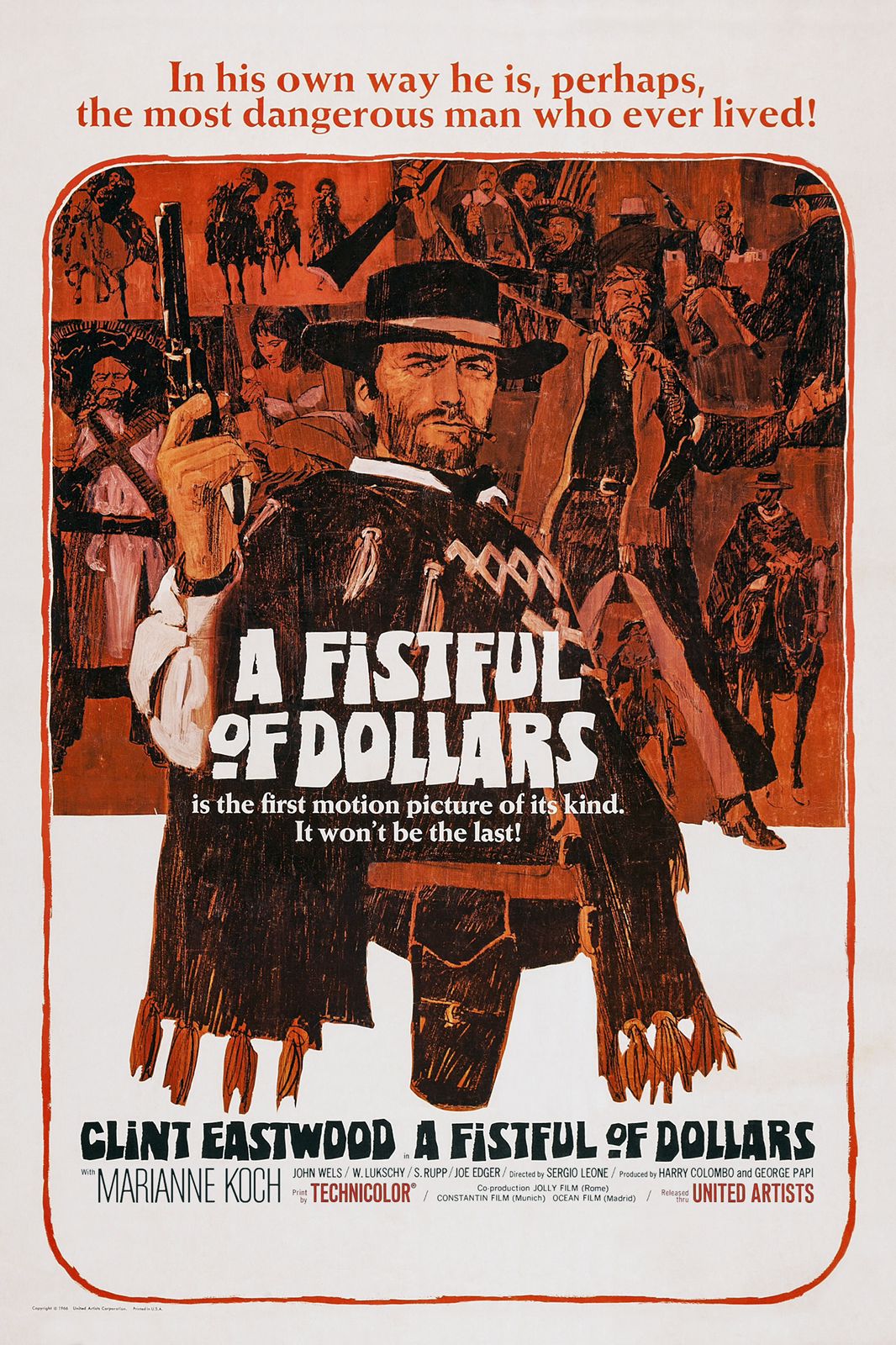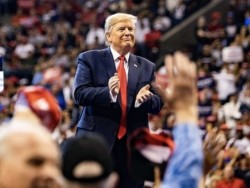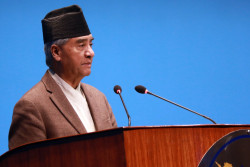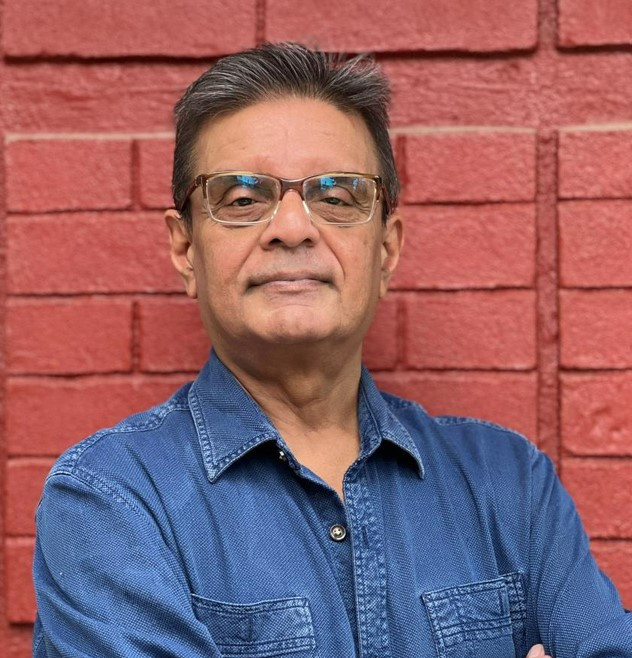Opinion
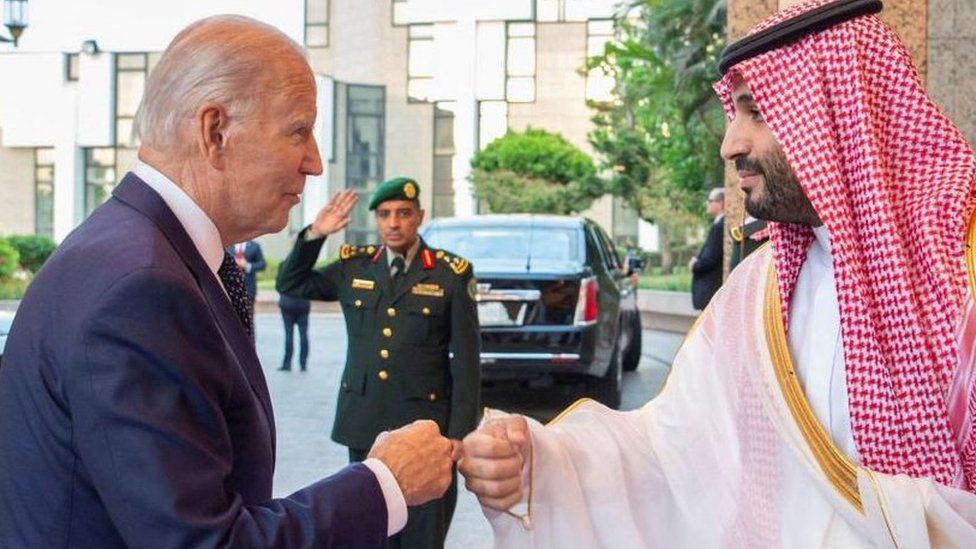
A Fist Full of Dollars, the original spaghetti western, was released in 1964 – the year I was born. The Hollywood classic spawned many sequels in the genre including The Good, the Bad and the Ugly, and immortalised its lead man Clint Eastwood and his director Sergio Leone.
I chanced to watch the movie only in 1980, that too a bootleg VHS version in Makhan Galli when ‘video halls’ were all the rage in Kathmandu’s alleys.
So, when I recently saw images of US President Joe Biden bumping fists with Saudi Arabia’s ruler Mohammed Bin Salman (MBS), the irony did not escape me: these were fists full of petro-dollars.
MBS is beyond reasonable doubt responsible for human rights crimes against his own compatriots – no émigrés spared. No amount of duplicity will absolve him or the US of state oppression.
Scribes like us are still outraged that MBS should have the audacity to plan and execute the horrible 2018 assassination of Jamal Khashoggi, a conscientious objector, regardless of his US citizenship or any false hopes he might have harboured about immunity.
Candidate Biden, during his election campaign in 2019, raised a ruckus over Khashoggis’s murder and promised to hold the Saudis to account. But, barely three years later, as US president, he goes a-visiting and merrily feting the Saudi leadership. What message does this convey to the rest of the democratic world?
At the murkiest level, it tells us that the US leadership is morally bankrupt. It unveils the hollowness of ‘liberal, western values’. But, at a more charitable level, it also reminds us that foreign policy is always an extension of domestic interests. That Biden ate crow and that he would now publicly disgrace himself before the House of Saud, should really come as no surprise.
It only confirms the limits of high-minded diplomacy and the universal truth about political lightweights who blink when you least expect them to. Only in Biden’s case, this would be pushing American Exceptionalism a bit too far.
Also Read: Rooting for Brown Brit
Joe Biden knows his leadership hangs in the balance.
Come November, during the mid-terms, there’s every chance the rest of his presidency could be reduced to lame duck. We all get it that he desperately needs Saudi and Gulf oil to keep the US economy humming. And bend over backwards he will. We also get it that Biden will finally reverse many Trump-era tariffs on Chinese imports in his bid to tame US inflation, stubbornly ensconced at a four-decade high.
After all, US elections are rarely won or lost on foreign policy unless US lives are involved, e.g., Vietnam in the 70s or Iran in the 80s. US foreign policy ‘successes’ are always too dark and unpalatable to publicly tout.
To be fair, Biden is only the latest in a succession of US presidents after Nixon to have inherited a worldview driven by a weaponised monetary policy. In fact, French President Valéry Giscard d'Estaing warned the rest of the world as early as in the 1960s of what was to come as a result of the “exorbitant privilege” the US enjoyed by virtue of the dollar becoming a global reserve currency.
Nixon confirmed those fears when he took the dollar off the gold standard in 1971. And that birthed both the “petro-dollar” and the US “military-industrial complex”- everyone’s bane today with the exception perhaps of a fistful of American gunrunners and the political class they feed.
